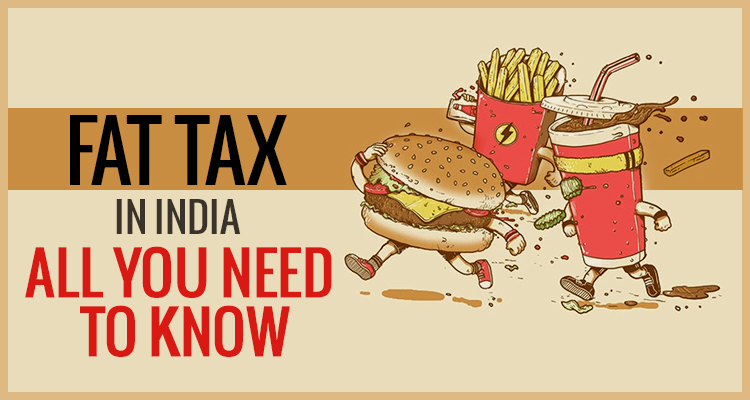A brief introduction to the fat tax, which is particularly liable for food types that are not suitable for large-scale consumption. The Kerala government has introduced the Fat tax for the first time in the state to slow down junk food consumption. The revenue generated from this tax will be used for the development of the state.
What is the Fat Tax and Its Significance?
A fat tax is a kind of tax that is liable on junk foods and street foods that lead to body-related problems and increase body weight. The surcharge is collected based on selected foods that are responsible for increasing the weight of an individual. The main purpose of imposing the fat tax is to discourage the consumption of unhealthy diets. Some studies reveal that even a 1% per ounce tax on beverages may reduce consumption by 25 per cent.
Benefits of Fat Tax in India
The main reason behind implementing the fat tax is to make sure that people do not consume unhygienic food on a large scale. The basic need of the time is to improve the health-related issues of society and make it prosperous and healthy. The research indicates that the increase in the consumption of junk foods makes people unhealthy.
Kerala Government’s Initiative Regarding Fat Tax
Kerala Government has imposed a 14.5 per cent “fat tax” on foods such as burgers, and pizza which is sold openly at the Kerala Renaissance cultural complexes, and indoor stadiums. The budget introduced by the CPM-led government aims to restore the financial condition of the state by introducing mandatory taxes which would eventually benefit the people. The budget underlines a separate Rs 100 crore allocation for the development of complexes, concerts, galleries, bookshops and other necessary facilities in the state.
The “fat tax” will be liable for the junk foods sold through multinational food chains like Pizza Hut, and McDonald’s. Historically, the tax was introduced in October 2011 by Denmark. Other countries such as Finland, the UK, France, and Hungary have imposed sugar tax on sugar-sweetened beverages.
To boost the economy of the state, the Finance Minister had also proposed an investment of Rs 12,000 crore of investments on the infrastructure and created funds with the help of SEBI and RBI. The State Government will also guarantee the funds for land acquisition required for developing roads and pipelines. The government also announces some welfare schemes and offers free rice to those in need via the PDS system. The state aims to obtain Rs 17, 926 crore in the upcoming fiscal, improving the present fiscal which will be around Rs 13,066 crore. The revenue generated via the public debt will be used for uplifting the poor condition.
Gujarat Government To Follow Kerala Suite on “Fat Tax”
Gujaratis have to rethink before seeking an appetite for junk food because Now it’s turning for Gujarat to levy a ‘Fat Tax’ which is becoming a major talk of the town in the food industry & big giants of food chains – restaurants. Earlier Kerala was the first state to impose a Fat Tax on pizza, burgers & harmful junk food offered in restaurants & food chains. The Fat Tax is liable for foods that are not suitable for heavy consumption.
The decided percentage would be 14.5 if levied and the revenue generated by this action will be definitely invested in the development of healthcare facilities in the state. It is said that by the next financial year(April 2017), the goods & services tax (GST) may also come into effect. so the government is eager to implement the Fat Tax.
The food chain corporation is seen protesting against this new regime to save their customers for not diverting towards other options in the Indian food genre. This will create a hot discussion between the Gujarat government & the food chain industry. However, the Gujarat Government feels that this Tax is important.
